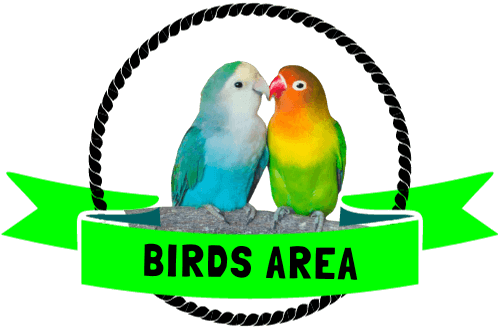Signs of a Lonely Budgie
Signs of a Lonely Budgie: A lonely budgie might chirp more or go silent, pick at feathers, ignore toys, and show less activity. If you spot these signs, it’s time to give them more company and care.
Have you noticed your budgie acting a bit off? Budgies are super social and can get lonely without enough attention or company. Just like us, they need friends and activities to stay happy.
In this guide, I’ll share the exact signs of loneliness to watch for, plus personal tips and expert advice to keep your feathered friend feeling loved and engaged.
Whether you’re considering getting a budgie or already have one, this article will help you understand their needs and keep them chirping and cheerful.
Why Do Budgies Get Lonely?
Budgies are naturally social birds. In the wild, they live in large flocks, so it’s not surprising that they can feel isolated in a quiet home.
If you keep a single budgie, they might get bored and start showing signs of loneliness. It’s like having a new friend in class and not being able to talk to anyone.
A lonely budgie might even start acting out to get your attention. Read- What do you do to entertain your bird?
How to Know if Your Budgie is Lonely

Have you noticed your budgie fluffing up and staring off into space? Each of these behaviours suggests that your budgie is feeling lonely or bored and needs more interaction and stimulation to stay happy.
Here’s a closer look at Signs of Loneliness in Budgies:
1. Constant Chirping or Screeching
A lonely budgie often chirps or screeches louder than usual. They’re trying to call out for attention or communicate with a companion. This could be their way of telling you, “Hey, I need someone to talk to.”
When I first got my budgie, Zippy, he would chirp nonstop when he was alone. But once I introduced another budgie, Peppy, the noise dropped drastically. They kept each other company, and the chirping calmed down.
One Reddit community member shared, “My budgie, Tweety, would never stop chirping when left alone in his cage. He only calmed down when I played budgie-friendly videos on YouTube to mimic the sounds of other birds!”
2. Feather Plucking and Self-Mutilation
Lonely budgies often become stressed or bored. This can lead to unhealthy behaviours like feather plucking.
Feather plucking is a common sign of loneliness. It’s a sign they’re trying to cope with their loneliness, and it’s not a good sign at all.
I noticed Zippy started pulling out his feathers when he spent too much time alone. I added a few more toys, mirrors, and, of course, another budgie. His feather-plucking stopped, and his feathers grew back nice and healthy.
According to Dr August Abbott, a bird behaviour expert, ‘Lonely budgies often pick at their feathers due to boredom. Adding new toys or a companion can make a huge difference.
3. Lack of Activity and Playfulness
Budgies are usually playful and active, especially when they’re not alone. If your budgie suddenly becomes less active or stops playing, it’s a clear sign something’s wrong.
A lonely budgie may just be too sad or bored to move around.
Zippy, who was once very active, became lethargic when alone for too long. After I got him a companion, he started playing and moving around more—like his old self again.
4. Lack of Vocalization or Sudden Silence
While some budgies call out for attention, others may go silent when they feel neglected or lonely. A sudden quiet budgie might be shutting down because it has no one to interact with.
Once, Zippy stopped chirping altogether. I thought he was just being calm, but then I realised he wasn’t interacting with me or his toys.
After I brought in Peppy, he started chatting again, and their chirping filled the house with joy.
5. Aggressive Behaviour or Biting
Lonely budgies may act out in frustration. If your normally sweet budgie starts becoming aggressive or nipping at you, they might be trying to get attention. It’s a sign they’re lonely and possibly irritated by not having a bird companion.
One day, Zippy nipped me for no reason. I was surprised, as he had always been gentle. After researching, I found that lacking social interaction can cause a budgie to get aggressive. Introducing another budgie solved the issue, and Zippy became his cheerful self again.
Helping a Lonely Budgie: 5 Simple Steps

Your lonely budgie needs more company and fun activities to stay happy. But actually, do budgies need a friend? Yes, need. To learn more details, read Do Budgies Need to Be in Pairs.
Here’s how to make your budgie feel happier and more connected:
1. Spend Quality Time with Them
Budgies love attention, so they dedicate time daily to interacting with them. Talk, whistle, or sing to your budgie—they’ll often chirp back, creating a mini conversation.
Making a daily habit of chatting with them can go a long way. I noticed that even just 10–15 minutes of focused interaction can brighten my budgie’s mood!
2. Choosing the Right Toys for Your Budgie
Budgies can get bored with the same toys. Offer a variety of toys, like bells, mirrors, and chewable items, and rotate them weekly to keep things fresh. ( Read- Homemade Toys for Budgies)
Many budgie owners on forums suggest toys made from natural materials, like wood and paper, which can keep them busy and happy for hours.
My budgie loves his chewable toys – he gets super excited whenever I bring in something new.
To know about the best types of toys for single budgies, read budgie toys.
3. Consider a Second Budgie
If you have the space and time, a feathered friend could be the best company for your budgie. Budgies are social animals, and having a buddy is natural for them.
Watching them chat, groom, and play together is truly heartwarming. Just introduce a new bird gradually, as some budgies may need a bit of time to adjust.
4. Play Budgie Sounds or Soft Music
When you’re not home, leaving on soft, cheerful sounds can comfort your budgie.
Some budgie owners play recordings of budgie sounds or gentle music to make their bird feel less alone. I tried this with my budgie, and he chirped along happily – it really helped him feel like he was part of a flock!
5. Place Their Cage in a Busy Area of the Home
Budgies love to watch what’s going on around them. Positioning their cage in a family room or somewhere with regular activity can keep them entertained.
Avoid putting them in isolated or quiet spaces. They love being part of the action, even if they’re watching from their cage.
Each step helps your budgie feel connected and entertained, whether alone or with a companion.
Spending quality time with them, adding variety to their toys, and creating an interactive environment ensures your budgie feels loved and never lonely.
Frequently Asked Questions And Answers
1. Can a budgie be happy living alone?
2. What are the signs of a happy budgie?
3. How much time should I spend with my budgie each day?
4. Can budgies recognize their owners?
5. What kind of music do budgies enjoy?
6. What toys are best for a single budgie?
7. How can I make my budgie feel safe and secure?
Wrapping On Signs of a Lonely Budgie
A lonely budgie isn’t just sad—they may show signs of stress, like chirping loudly, feather plucking, or becoming quiet.
The best way to help them is by providing companionship, toys, and plenty of interaction. If you care about your budgie’s well-being, it’s worth investing in a buddy for them or giving them more of your time.
Remember, a happy budgie is a healthy budgie. If this guide helped you understand your budgie better, please share it. Let’s help more budgies feel loved and happy.
Thanks.







